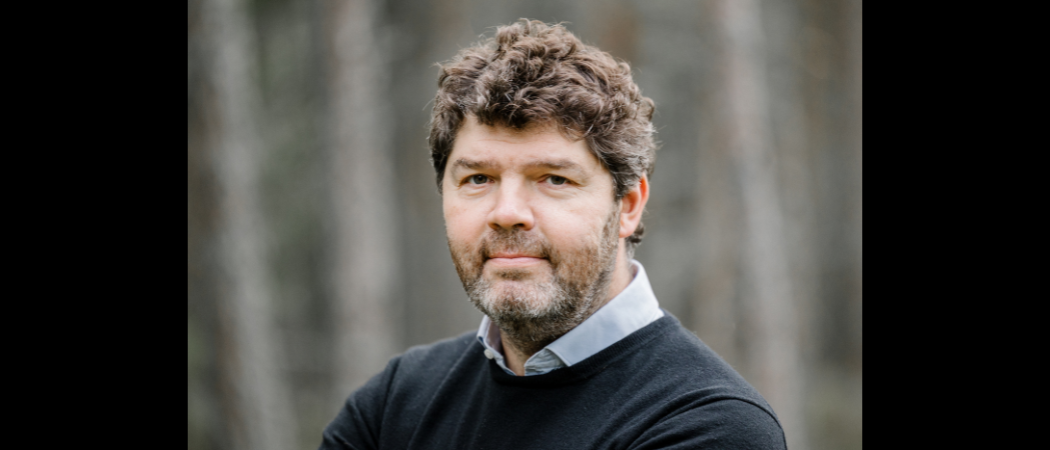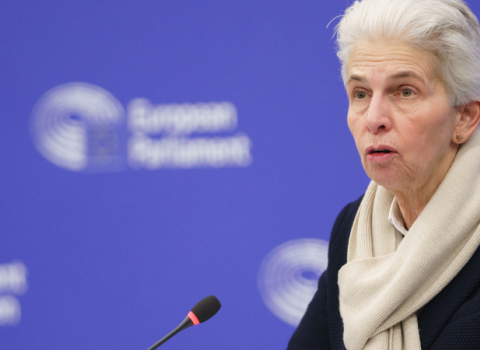In the wake of an espionage scandal, a former vice rector of the University of Tartu examines how universities across the EU have become targets in Russia’s hybrid war - and how they should defend themselves

Kristjan Vassil, associate professor of technology research at the University of Tartu. Photo credit: Annika Metsla
In mid-January, Estonian security services apprehended Viacheslav Morozov, professor of international political theory at the University of Tartu, one of the oldest universities in the Baltics. Morozov now stands accused of espionage on behalf of the Russian Federation against the Republic of Estonia and is currently in custody pending investigation.
The public response to the announcement ranged from cold pragmatism to awe and shock. Many expressed bewilderment, questioning how the university could be a source of interest to foreign intelligence services. This doubt was particularly pronounced in western academic circles.
Without prejudice to the Morozov case, I aim to demonstrate why western universities are highly valuable sources of intelligence for Russia, amid information warfare across NATO countries.
Access to people and networks: a basis for information warfare
Our universities are a valuable platform to Russia because of our people and networks: where they come from, what they think, who they are connected to, what is the nature of their relationships, what are their attitudes.
Understanding who to provoke, irritate, or expose to certain types of information, and who to avoid, is key to orchestrating information attacks. Information operations are not haphazard; they don't involve simply flooding social media with fake news. Instead, they rely on meticulously constructed, personalised network maps that are managed digitally in real time.
Within these maps, each individual – that is all of us in academia - is characterised, profiled, and assigned specific roles, ranging from ‘useful idiots’ to ‘immune pragmatists’. Such insight is vital for information warfare, and it's far easier to gather within our territories and organisations than from a distance. Given this, it would be naive to assume that such activities are not widespread.
I saw this myself while vice rector at Tartu on 7 March 2022, when the university made the decision to limit the admission of Russian and Belarusian citizens, as the international science community mounted a sanctions campaign in support of Ukrainian academics. Exceptions were made for those with EU residency or already studying in Estonia.
Mere hours after the decision, the university became the target of an extensive information onslaught, orchestrated through more than thirty internet troll accounts. This coordinated attack disseminated disinformation, partial truths, and initiated direct communication channels to incite conflict, confrontation, and hatred. Ukrainian students at the University of Tartu were also targeted.
As the information assault intensified, our lack of situational awareness became apparent. We were thrust into a murky realm where the lines between genuine discourse and orchestrated information warfare blurred. Unwittingly, we became pawns in a sophisticated battle waged in the shadows of our digital spaces. Respected journalists and academics were drawn into the fray and engaged in polarising discussions, unaware of the underlying manipulations at play.
Despite the confusion, vigilant members of the academic community quickly recognised these were deliberate information attacks, leading to the exposure of the provocateurs and the swift end of their activities in respective digital threads.
The university also worked directly with the Estonian Internal Security Service, highlighting the crucial role of synergy between education institutions and security agencies in combating cyber threats and information warfare - a connection that may not immediately obvious but which is vitally important.
The aftermath of the University of Tartu's decision and the subsequent debate was a sobering lesson. The orchestrators of the information offensive laid their tactics bare, elevating an academic decision into a major controversy. This episode offers a glimpse into the adversary's arsenal and methods, presenting us with an opportunity to pre-empt future assaults.
A pathway to influence: from research to international networks
Another reason why academia is a valuable source for Russian intelligence services is that it offers a streamlined path from research to influence in international organisations and networks. This route starts with activities in institutes, lectures, workshops, research groups, grant applications and scientific work. The interest of the adversary lies in access to research and scientific discoveries in various fields, from bioengineering to pharmaceuticals - though spies are also keen on social sciences and research into individual and societal attitudes.
Data from the Estonian Research Information System indicates Morozov had led multiple studies on identity and that through his research he could have gathered and standardised data on national identity.
Should these suspicions be validated, the Estonian Government has funded and supported the creation of a database that directly aids the intelligence efforts of the adversary. Studies focusing on voting patterns, technology use, mobility, and other demographic factors also hold considerable value for foreign intelligence agencies. Within the university setting, access to such studies - including detailed analyses and raw data - is significantly easier than in the broader public domain, where only generalised summaries are typically available.
The importance of access to research groups, senior academics and academic discussions cannot be discounted, but it is only a pathway to more actionable arenas of international networks and organisations.
Active engagement within academic communities, professionalism and high quality research frequently results in appointments to various formal committees and boards. Morozov was a member of the Academic Committee of the University of Tartu. Over time, such appointments can evolve into prominent positions within international networks closely associated with European and international institutions. Building trust through proxy is a formidable asset, and with the passage of years and even decades, it can elevate foreign operatives to influential positions within our decision-making system. Universities provide an excellent platform for achieving this.
The Morozov case also provides a lesson beyond academia, to all sectors populated by skilled people in Estonia and beyond, in business, the technology sector, IT developers (particularly those responsible for digital government solutions), growth companies and start-ups, which are all potentially sources of intelligence for adversaries.
The rise of situational awareness
Russian president Vladimir Putin’s regime is taking drastic action to control the information flow at home, but it is clear that considerable resources have been allocated to information attacks abroad. We must remind ourselves that Russia’s largest army is not the one with tanks and fighter jets in Ukraine, but a widespread network of fake news producers, agitators, propagandists, bots and internet trolls who are rewarded for every click, comment and utterance that contributes to achieving Russia’s goals.
This network doesn't operate solely from afar or through soft tactics: it is actively engaging on the ground, exploiting both allies and adversaries of Putin's regime to sow division in the West. Since December 2023, the Estonian security services have apprehended some ten or so individuals conducting operations on Estonian territory under orders from Russian intelligence services.
For universities, limiting activities, classifying information, or imposing strict controls is not the answer. Rather, the solution lies in maintaining a realistic and clear grasp of our values, coupled with a critical yet non-paranoid awareness of our surroundings. In case of suspicion, it's vital to seek support and advice from state institutions. Establishing proactive engagement with the security services fosters a dialogue before any incidents occur, enhancing preparedness. No concern should be deemed too minor; the security services are often best positioned to see the full picture, and a single piece of the puzzle could be crucial.
We need to reassess our situational awareness. Originally a national defence term, situational awareness involves having a comprehensive grasp of the factors that impact one’s position in a conflict, whether as an individual, a military unit, or a nation.
A crucial aspect of situational awareness in the context of universities is recognising what information could benefit the adversary and identifying activities that compromise our security. Being situationally aware allows us to avoid undue naivety and prevent us becoming unwitting participants in Russia’s information warfare.
Kristjan Vassil is associate professor of technology research at the University of Tartu. Between 2017 and 2023, he was vice rector for research at the university.
Editor’s note: Science|Business tried to contact Viacheslav Morozov for comment but his university email address has been restricted





 A unique international forum for public research organisations and companies to connect their external engagement with strategic interests around their R&D system.
A unique international forum for public research organisations and companies to connect their external engagement with strategic interests around their R&D system.